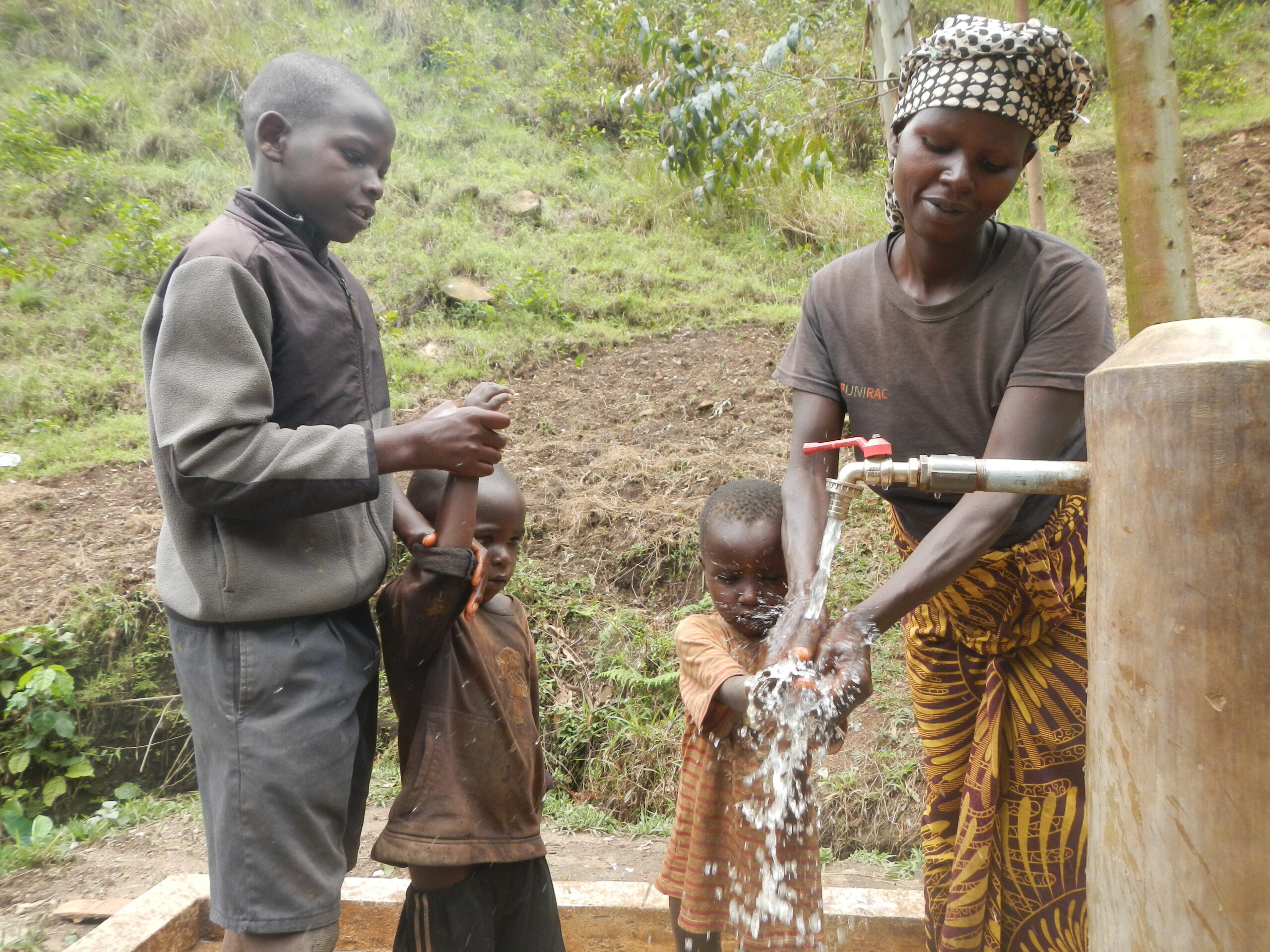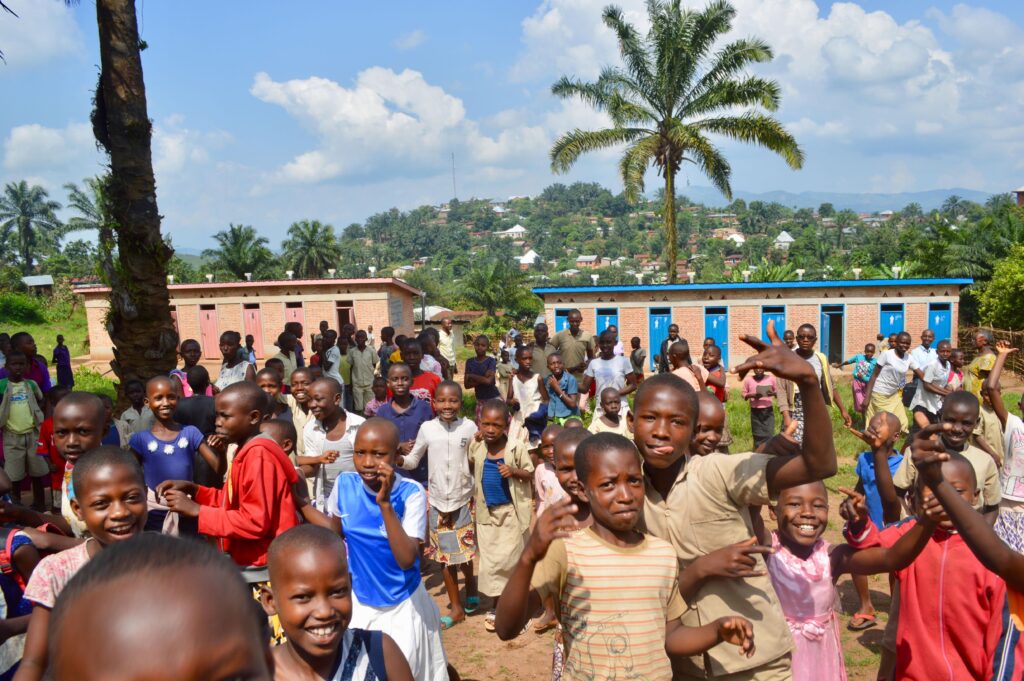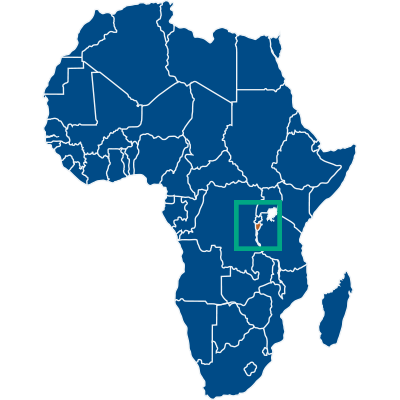Join For Water works in Burundi in the municipalities of Bubanza and Isare, two source areas for rivers that flow to the capital Bujumbura and Lake Tanganjika.
The Burundian population is highly dependent on subsistence farming. As a result, more and more forest areas and wetlands are disappearing. Together with climate change and population growth, this increases the pressure on water resources and ecosystems.
The water infrastructure is not suitable to meet the needs of the rapidly growing population. Many travel a distance of 8 km to find water. Two hours there, two hours back, with very heavy jerry cans. This limits the amount of time and energy left to go to school every day or to earn extra income. A lack of water close to home keeps people trapped in poverty.
54% of the rural population has no access to sanitation. The lack of sanitation infrastructure and poorly maintained water supply systems often lead to poor water quality and disease. Governments are aware of the problems but have insufficient resources to meet the needs of the people.

What we do
Together with the Burundian organisations AVEDEC, OAP, ADISCO and the municipalities, we are committed to improving access to clean drinking water and sanitation facilities. A selection of our activities:
- We are providing two new drinking water systems with access to drinking water for 13,000 people: for 8,000 people in Bubanza and 5,000 in Isare.
- We are providing access to sanitary facilities for 1,200 people, through the construction of ecological toilets in Bubanza.
- We are professionalising the management of the drinking water supply.
- We provide support when it comes to monitoring the quality and the availability of drinking water.
These initiatives part of a broader program in Burundi that aims to keep clean and sufficient water available for people and nature alike. It focuses on protecting water resources, access to drinking water and sanitation, and water for food production.


